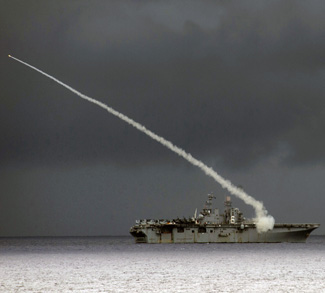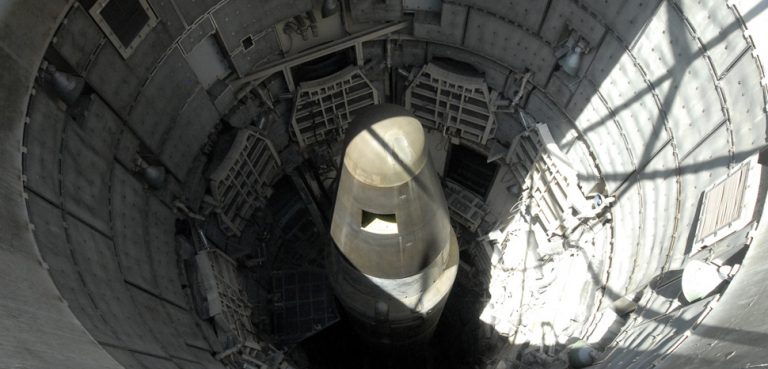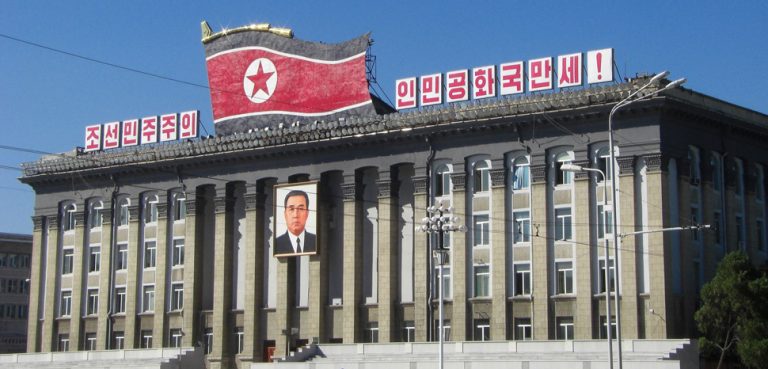Summary
For nuclear weapons to fade toward oblivion, perhaps nothing needs to be done except wait, while their low value and high cost cause more and more people to question their usefullness.
Analysis
In an important sense, nuclear weapons have been “managed” exceedingly well since 1945. They have been around, eventually in great numbers, for two-thirds of a century, and none have been detonated either in anger or by accident.
Nevertheless, legions of alarmed pundits over the decades have predicted inevitable doom: That clock on the cover of the Bulletin of the Atomic Scientists has remained suggestively poised at shortly before midnight since the 1940s.
But it will come as no shock (especially in Switzerland) to suggest that clocks with hands that do not rotate are useless.
And so, as it happens, are nuclear weapons.
When the value is too low…
It is difficult to see how any country that has possessed nuclear weapons has found them beneficial since World War II. They have supplied little diplomatic advantage, and no nuclear-armed country has discovered an effective use for them in the many wars waged in places like Vietnam, Korea, Afghanistan, the Falklands, Algeria, Lebanon, Kashmir, Kosovo, Iraq, Grenada, Panama and Hungary.
Nor have they been useful in deterring war. Their supposed chief achievement was to prevent World War III during the Cold War, but this notion continues to be undercut with each leak from Soviet archives. Although highly sympathetic to revolutionary and civil war violence, Soviet ideology dismissed direct war against the capitalist world, whether nuclear or not, as stupendously stupid. That is, there was nothing for the nukes to deter. Those who experienced World War II scarcely needed visions of mushroom clouds to realize that it was imperative to be cautious about major war.
The weapons’ uselessness also helps to explain why alarmists have been wrong for decades about the pace of nuclear proliferation. Dozens of countries have been technologically capable of obtaining nuclear arsenals, but very few have done so.
Although international efforts have often been given credit for this, the chief reason seems to be that countries considering developing the weapons have found them to be a foolish and wasteful expenditure. Most, like Japan, joined the nonproliferation regime only after deciding they didn’t want the weapons anyway. And some of those that tried to get the weapons eventually gave up in frustration. Thus when Libya’s self-important dictator, Muammar Gaddafi, abruptly abandoned his nuclear program in 2003, inspectors found much of his laboriously-acquired material still in its packing boxes.
In the last decades, in fact, more countries have abandoned nuclear weapons programs than have taken them up. Although happy to take the bribes offered to them for so doing, none has yet found that abandoning the weapons has been disadvantageous.
…and cost too high
At the same time, alarmist efforts to prevent the proliferation of nuclear weapons – particularly to Iraq and North Korea – have proved to be exceedingly costly. It is far from clear what Saddam Hussein, presiding over a deeply resentful population and an unreliable army (fearing overthrow, he was wary about issuing it bullets), could have done with a tiny number of bombs against his neighbors and their massively armed well-wishers other than stoke his ego and deter real or imagined threats. But the 1990s sanctions and the anti-proliferation war against Iraq of 2003 have cost more lives – probably far more lives – than the explosions on Hiroshima and Nagasaki combined. And so, it may well be, have the sanctions against the pathetic regime in North Korea.
Nuclear proliferation, while not necessarily desirable, is unlikely to accelerate or prove to be a major danger. I have nothing against making nonproliferation a high priority. I would simply like to top it with a somewhat higher one: not killing tens or hundreds of thousands of people under the obsessive sway of worst-case scenario fantasies. And one way to reduce the likelihood that errant regimes will seek nuclear arsenals is to stop threatening them constantly.
We now hear that Osama bin Laden was devilishly plotting train derailments from his once-quiet quarters in Pakistan. This scarcely suggests that al-Qaida was into high-tech nuclear developments; the likelihood that terrorists will come up with such weapons is vanishingly small.
Although they seem to be useless, nuclear weapons have been exceedingly effective at generating diplomatic hysteria, exquisite theory-building (or nuclear metaphysics), and massive expenditure. It has been estimated that during the Cold War, the weapons cost the US somewhere between $5 and $10 trillion – enough, by one calculation, to have purchased everything in the country except for the land.
The long fade?
For nuclear weapons to fade toward oblivion, perhaps nothing needs to be done but wait, as more and more people come to question the weapons’ value and cost, while avoiding waging sanctimonious anti-proliferation wars that snuff out more lives than Hiroshima. No real “management” may be necessary.
Already, the US and Russia have engaged in something of a negative arms race, massively reducing their atomic arsenals from levels that are ridiculously large to ones that are merely foolishly large. Meanwhile, France has unilaterally and without any international agreement cut its collection of nuclear bombs by two-thirds; the UK has wondered in public why it needs to have any at all (a very good question); and China (once the ultimate “rogue state”) has built far fewer than it could have.
A declining number of clever people will continue trying to figure out uses for the weapons – for example to create what they spookily call “measured ambiguity.” But in time, perhaps even American taxpayers will come to muse on the expense – something like $50 billion per year. The weapons, without studied effort, might then be allowed to rust in peace like the cannon that British Canada and the US pointed menacingly at each other for decades; or the military fortifications along the Rhine, a river that has now gone uncrossed by any army with murderous intent for the longest period of time in thousands of years – an astounding development for which nuclear weapons deserve no credit whatsoever.
Whether all the weapons will go away, I am not sure. Perhaps a few could be preserved in a museum somewhere, attended by an aging coterie of former weapons’ scientists and atomic intellectuals. I would like to suggest that it be topped by an elegant clock, one that works. I am sure prosperous, peaceful and non-nuclear Switzerland could come up with one.



